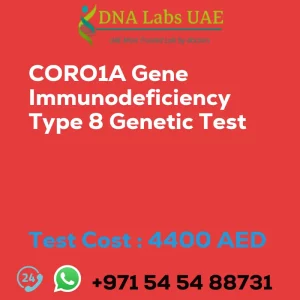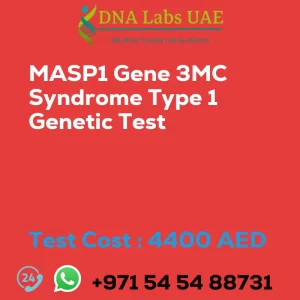AAGAB Gene Keratoderma palmoplantar punctate type 1A Genetic Test
Test Name: AAGAB Gene Keratoderma palmoplantar punctate type 1A Genetic Test
Components: Blood or Extracted DNA or One drop Blood on FTA Card
Price: 4400.0 AED
Report Delivery: 3 to 4 Weeks
Method: NGS Technology
Test Type: Osteology Dermatology Immunology Disorders
Doctor: Dermatologist
Test Department: Genetics
Pre Test Information: Clinical History of Patient who is going for AAGAB Gene Keratoderma, palmoplantar, punctate type 1A NGS Genetic DNA Test. A Genetic Counselling session to draw a pedigree chart of family members affected with AAGAB Gene Keratoderma, palmoplantar, punctate type 1A NGS Genetic DNA Test gene AAGAB
Test Details: AAGAB gene keratoderma, palmoplantar, punctate type 1A NGS genetic test is a diagnostic test that uses next-generation sequencing (NGS) technology to analyze the AAGAB gene for mutations associated with palmoplantar keratoderma, punctate type 1A. Palmoplantar keratoderma refers to a group of rare genetic disorders characterized by thickening of the skin on the palms of the hands and soles of the feet. Punctate keratoderma specifically refers to the presence of small, dot-like areas of thickened skin. The AAGAB gene is responsible for providing instructions for the production of the alpha- and gamma-adaptin-binding protein p34, which is involved in the formation of clathrin-coated vesicles. Mutations in the AAGAB gene have been linked to the development of palmoplantar keratoderma, punctate type 1A. The NGS genetic test involves collecting a sample of DNA, usually through a blood sample, from the individual being tested. The DNA is then sequenced using NGS technology to identify any mutations or variations in the AAGAB gene. The results of the test can help confirm a diagnosis of palmoplantar keratoderma, punctate type 1A and provide valuable information for genetic counseling and management of the condition. It is important to note that this test specifically focuses on mutations in the AAGAB gene and may not identify mutations in other genes that can also cause palmoplantar keratoderma or similar conditions. Therefore, additional genetic testing may be necessary depending on the specific clinical presentation and suspected genetic cause.
| Test Name | AAGAB Gene Keratoderma palmoplantar punctate type 1A Genetic Test |
|---|---|
| Components | |
| Price | 4400.0 AED |
| Sample Condition | Blood or Extracted DNA or One drop Blood on FTA Card |
| Report Delivery | 3 to 4 Weeks |
| Method | NGS Technology |
| Test type | Osteology Dermatology Immunology Disorders |
| Doctor | Dermatologist |
| Test Department: | Genetics |
| Pre Test Information | Clinical History of Patient who is going for AAGAB Gene Keratoderma, palmoplantar, punctate type 1A NGS Genetic DNA Test. A Genetic Counselling session to draw a pedigree chart of family members affected with AAGAB Gene Keratoderma, palmoplantar, punctate type 1A NGS Genetic DNA Test gene AAGAB |
| Test Details |
AAGAB gene keratoderma, palmoplantar, punctate type 1A NGS genetic test is a diagnostic test that uses next-generation sequencing (NGS) technology to analyze the AAGAB gene for mutations associated with palmoplantar keratoderma, punctate type 1A. Palmoplantar keratoderma refers to a group of rare genetic disorders characterized by thickening of the skin on the palms of the hands and soles of the feet. Punctate keratoderma specifically refers to the presence of small, dot-like areas of thickened skin. The AAGAB gene is responsible for providing instructions for the production of the alpha- and gamma-adaptin-binding protein p34, which is involved in the formation of clathrin-coated vesicles. Mutations in the AAGAB gene have been linked to the development of palmoplantar keratoderma, punctate type 1A. The NGS genetic test involves collecting a sample of DNA, usually through a blood sample, from the individual being tested. The DNA is then sequenced using NGS technology to identify any mutations or variations in the AAGAB gene. The results of the test can help confirm a diagnosis of palmoplantar keratoderma, punctate type 1A and provide valuable information for genetic counseling and management of the condition. It is important to note that this test specifically focuses on mutations in the AAGAB gene and may not identify mutations in other genes that can also cause palmoplantar keratoderma or similar conditions. Therefore, additional genetic testing may be necessary depending on the specific clinical presentation and suspected genetic cause. |







